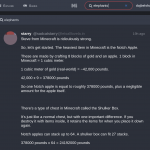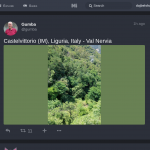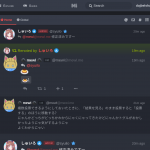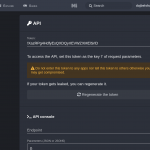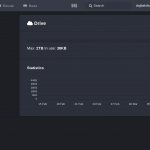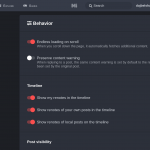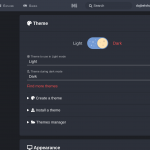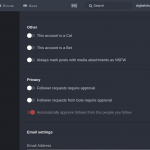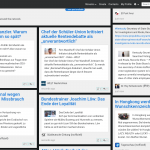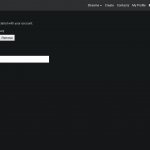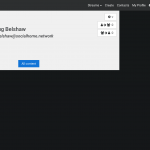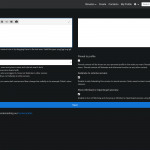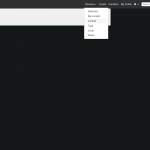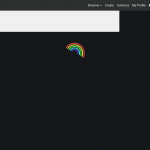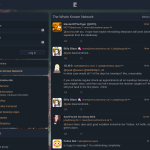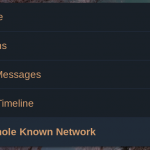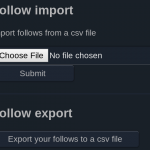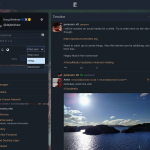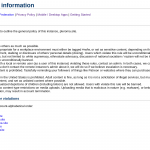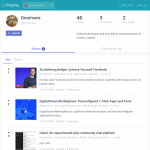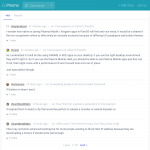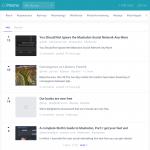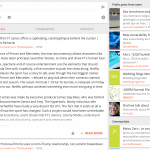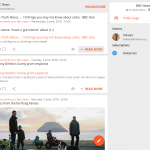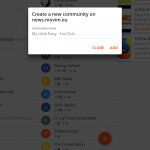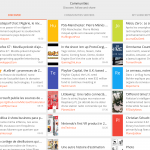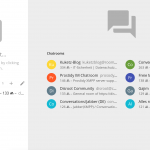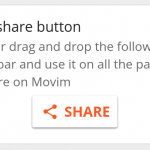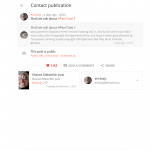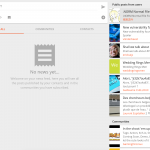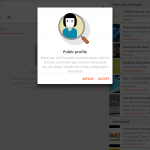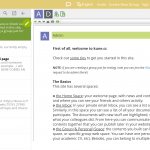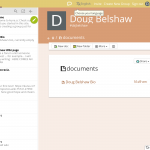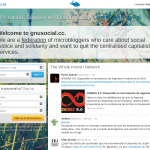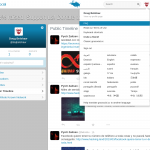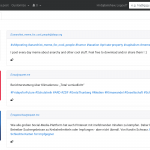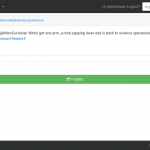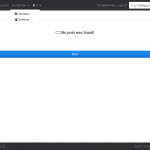Fediverse field trip
After spending a long time researching various options for MoodleNet last year, I recently revisited the Fediverse with fresh eyes. I enjoy using Mastodon regularly, and have written about it here before, so didn’t include it in this roundup.
Here’s some of the social networks I played around with recently, in no particular order. It’s not meant to be a comprehensive overview, just what grabbed my attention given the context in which I’m currently working. That’s why I’ve called it a ‘field trip’ 😉
Misskey
Weird name but pretty awesome social network that’s very popular in Japan. Like MoodleNet and Mastodon, it’s based on the ActivityPub protocol. In fact, if you’re a Mastodon user, it will feel somewhat familiar.
Things I like:
- Drive (2TB storage!)
- Lots of options for customisation, including ‘dark mode’
- Easy search options
- Connect lots of different services
- API
Socialhome
‘Card’-based social network that uses a Bootstrap-style user interface. Quite complicated but seemingly flexible.
Things I like:
- Very image-friendly
- API
- Data export
Pleroma
Pleroma is a very scalable social network based on Elixir. It’s like Mastodon, but snappier.
Things I like:
- Clear Terms of Service
- Very configurable (including formatting options)
- ‘The whole known network’
- Export data and delete account
- Restrict access
Prismo
A new social network to replace sites like Reddit. Users can vote up stories they’re interested in and add comments.
Things I like:
- Clear, crisp design
- Obvious what it’s to be used for
- Simple profiles
Movim
Uses the XMPP protocol for backwards compatibility with a wide range of apps. Similar kind of communities and collections approach to MoodleNet, but focused on news.
Things I like:
- Modals help users understand the interface
- Focus on communities and curation
- Option to chat as well as post publicly
- Easy to share URLs
- Clear who’s moderating communities
Kune
Based on Apache Wave (formerly Google Wave) which is now deprecated.
Things I like:
- Combination of stream and wiki
- Indication of who’s involved in creating/discussing threads
- Everything feels editable
GNUsocial
https://fediverse.party/en/gnusocial
Uses the OStatus protocol and was the original basis for Mastodon (as far as I understand). Feels similar to Pleroma in some respects.
Things I like:
- Feels like early Twitter
- Easy to use
- Configurable
GangGo
https://ganggo.git.feneas.org/documentation
Built in GoLang and uses the same federation protocol as Diaspora. Still in alpha.
Things I like:
- Simple UI
- Vote up/down posts
- Private and public streams
Along with Mastodon, I didn’t include Pixelfed in here because I’m so familiar with it. I possibly should have included PeerTube, Friendica, Diaspora, and Scuttlebutt. Perhaps I’ll follow this up with a Part 2 sometime?




